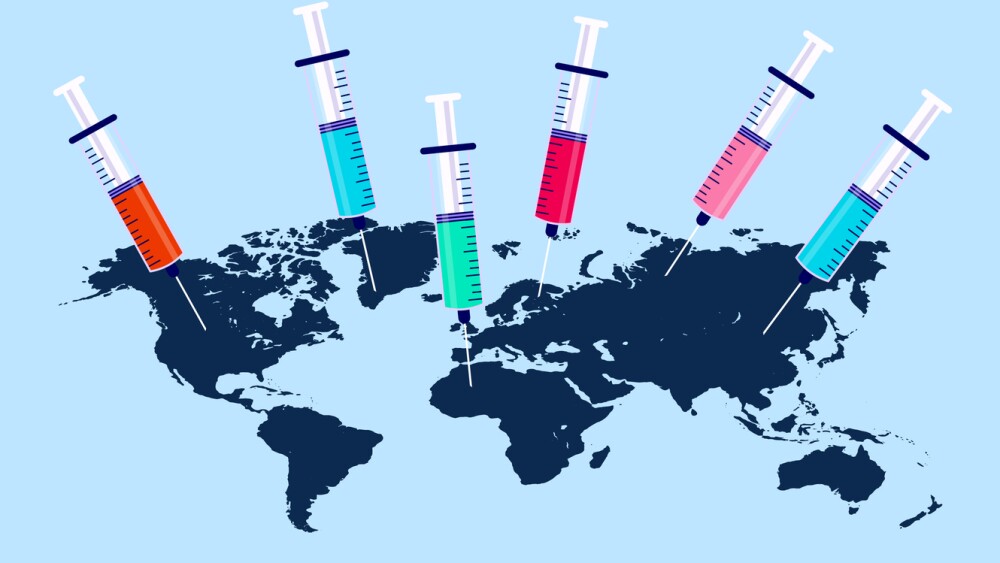Results from this randomized, parallel-group, open-label, multi-center study were presented today at the 31st Annual San Antonio Breast Cancer Symposium (SABCS). The study included only patients previously treated with anthracyclines who had a disease-free interval of at least one year.
The study found that patients treated with the DOXIL and docetaxel combination had a 35% risk reduction for developing disease progression compared with docetaxel alone (hazard ratio = 0.65; 95% confidence interval [0.55, 0.77]; p=0.000001). There is an almost three-month improvement in median TTP for patients treated with the combination compared with docetaxel monotherapy (9.8 versus 7.0 months, respectively).
The safety profile was consistent with known toxicities of the two agents. Additionally, the incidence of symptomatic cardiac events was 5% in the combination group versus 4% in the monotherapy group (>/= Grade 2 cardiac adverse events). Symptomatic congestive heart failure was reported in 1% of subjects in both groups. Arrhythmia was reported in 4% of the combination group and 3% of the monotherapy group. Protocol-defined LVEF decreases occurred in 5% of subjects in both groups.
"Anthracyclines are active drugs for metastatic breast cancer, but concerns about cardiac toxicity have prevented oncologists from using them in those who received anthracyclines as part of their adjuvant therapy," said Dr. Joseph Sparano, Director of the Breast Evaluation Center at the Montefiore-Einstein Cancer Center and Professor of Medicine & Women's Health at the Albert Einstein College of Medicine in New York, and lead investigator on the study. "The study suggests that the combination of DOXIL and docetaxel may be an effective treatment for patients with metastatic breast cancer who have relapsed after prior adjuvant anthracycline therapy."
Study Background
The study enrolled 751 women in 19 countries. Patients were randomly assigned to one of two treatment arms: DOXIL 30 mg/m2 followed by docetaxel 60 mg/m2 on the first day of every 21-day cycle; or docetaxel 75 mg/m2 on the first day of every 21-day cycle. Treatment continued until an unacceptable treatment-related toxicity or disease progression occurred.
The primary endpoint of the study was time to progression, as determined by independent reviewers blinded to study treatment. Secondary endpoints included response rate, overall survival and safety.
Response rates (the percentage of patients whose cancer shrinks after treatment) in patients treated with the DOXIL and docetaxel combination were significantly higher than those treated with docetaxel monotherapy (35% versus 26% respectively; p= 0.0085). Overall survival data were not yet mature; a final protocol-specified survival analysis is planned after the occurrence of 485 events.
The most common adverse reactions (e.g., those occurring in at least 20% of the patients) for the DOXIL and docetaxel combination compared to the monotherapy group, respectively, were:
* Hematological toxicities and infections, including: - Neutropenia - 66% (Grade 3/4 57%) versus 65% (Grade 3/4 59%), with febrile neutropenia reported in 7% versus 6% of patients - Anemia - 20% (Grade 3/4 2%) versus 17% (Grade 3/4 1%) - Infection - 30% (Grade 3/4 5%) versus 25% (Grade 3/4 2%) * Hand-foot syndrome: 61% (Grade 3/4 24%) versus 1% (Grade 3/4 0%) * Stomatitis: 52% (Grade 3/4 11%) versus 14% (Grade 3/4 1%) * Alopecia: 48% versus 45% * Asthenia: 29% (Grade 3/4 4%) versus 20% (Grade 3/4 3%) * Nausea: 28% (Grade 3/4 1%) versus 22% (Grade 3/4 <1%) * Fatigue: 20% (Grade 3/4 3%) versus 15% (Grade 3/4 2%)
The study was sponsored by Ortho Biotech Oncology Research & Development (ORD), a unit of Johnson & Johnson Pharmaceutical Research & Development, L.L.C.
About DOXIL®
DOXIL is indicated for the treatment of patients with ovarian cancer whose disease has progressed or recurred after prior platinum based therapy. DOXIL in combination with VELCADE® (bortezomib) is indicated for the treatment of patients with multiple myeloma who have not previously received VELCADE and have received at least one prior therapy. DOXIL is also indicated for the treatment of AIDS-related Kaposi's sarcoma in patients after failure of prior systemic chemotherapy or intolerance to such therapy.
IMPORTANT SAFETY INFORMATION
BOXED WARNINGS:
Cardiotoxicity, infusion reaction, myelosuppression, liver impairment, substitution
* The use of DOXIL may lead to cardiac toxicity. Myocardial damage may lead to congestive heart failure and may occur as the total cumulative dose of doxorubicin HCl approaches 550 mg/m2 - Prior use of other anthracyclines or anthracenediones should be included in calculations of total cumulative dose - Cardiac toxicity may also occur at lower cumulative doses (400 mg/m2) in patients with prior mediastinal irradiation or who are receiving concurrent cyclophosphamide therapy * Acute infusion-related reactions including, but not limited to, flushing, shortness of breath, facial swelling, headache, chills, back pain, tightness in the chest or throat, and/or hypotension have occurred in up to 10% of patients treated with DOXIL. In most patients, these reactions have resolved within several hours to a day once the infusion is terminated. In some patients, reactions resolved with slowing of the infusion rate - Serious and sometimes life-threatening or fatal allergic/anaphylactoid-like infusion reactions have occurred. Medications to treat such reactions, as well as emergency equipment, should be available for immediate use - The initial rate of infusion should be 1 mg/min to minimize the risk of infusion reactions * Severe myelosuppression may occur * DOXIL dosage should be reduced in patients with impaired hepatic function * Accidental substitution has resulted in severe side effects. Do not substitute for doxorubicin HCl on a mg per mg basis
Contraindications * Patients with a history of hypersensitivity reactions to a conventional doxorubicin formulation or the components of DOXIL * Nursing mothers
Additional Safety Information * Cardiac function should be carefully monitored - Congestive heart failure or cardiomyopathy may occur after discontinuation of anthracycline therapy - For patients with a history of cardiovascular disease, or if the results of cardiac monitoring indicate possible cardiac injury, the benefit of therapy must be weighed against the risk of myocardial injury - In the randomized multiple myeloma study, 25 patients (8%) in the VELCADE for Injection arm and 42 patients (13%) in the VELCADE plus DOXIL arm experienced left ventricular ejection fraction decrease (defined as absolute decrease >/= 15% over baseline or a >/= 5% decrease below institutional lower limit of normal) * Myelosuppression may occur; frequently monitor complete blood count (including platelet count), at least prior to each dose of DOXIL - In patients with recurrent ovarian cancer or AIDS-related Kaposi's sarcoma, hematologic toxicity (based on platelet count or absolute neutrophil count) may require dose reduction or delay in administration of DOXIL - In patients with multiple myeloma, hematologic toxicity (based on platelet count, absolute neutrophil count, hemoglobin level, or neutropenia with fever) may require dose reduction, delay in administration, or suspension of DOXIL and/or VELCADE - Persistent severe myelosuppression may result in superinfection, neutropenic fever, or hemorrhage - Sepsis occurring during neutropenia has resulted in discontinuation of treatment and in rare cases of death * DOXIL may potentiate the toxicity of other anticancer therapies, especially hematologic toxicities, when used in combination with other therapies that suppress bone marrow * Hand-foot syndrome (HFS) may occur during therapy with DOXIL - Based on HFS toxicity grade, dose reduction, or delay in administration, or discontinuation of DOXIL may be required - HFS was generally observed after 2 to 3 cycles of treatment, but may occur earlier - The reaction was mild in most patients, resolving in 1 to 2 weeks - The reaction can be severe and debilitating in some patients, resulting in discontinuation of therapy * DOXIL is an irritant, not a vesicant; use precautions to avoid extravasation * DOXIL can cause fetal harm when used during pregnancy * Recall reaction has occurred with DOXIL administration after radiotherapy * DOXIL may interact with drugs known to interact with the conventional formulation of doxorubicin HCl * In patients with recurrent ovarian cancer, the most common all-grade adverse reactions (ARs) >20% (DOXIL vs topotecan, respectively) included: asthenia (40% vs 51%), fever (21% vs 31%), nausea (46% vs 63%), stomatitis (41% vs 15%), vomiting (33% vs 44%), diarrhea (21% vs 35%), anorexia (20% vs 22%), dyspnea (15% vs 23%), HFS (51% vs 1%), and rash (29% vs 12%) - In addition, 19% vs 52.3% reported alopecia (all grades) - Grade 3/4 hematologic ARs reported in >5% (DOXIL vs topotecan, respectively) were neutropenia (12% vs 76%) and anemia (6% vs 29%) * In patients with multiple myeloma, the most common all-grade ARs >20% (VELCADE plus DOXIL vs VELCADE, respectively) included: neutropenia (36% vs 22%), thrombocytopenia (33% vs 28%), anemia (25% vs 21%), fatigue (36% vs 28%), pyrexia (31% vs 22%), asthenia (22% vs 18%), nausea (48% vs 40%), diarrhea (46% vs 39%), vomiting (32% vs 22%), constipation (31% vs 31%), mucositis/stomatitis (20% vs 5%), peripheral neuropathy (42% vs 45%), neuralgia (17% vs 20%), and rash (22% vs 18%) - In addition, 19% vs <1% reported HFS * In patients with AIDS related Kaposi's sarcoma, ARs reported in >/= 5% of DOXIL-treated patients were: neutropenia (ANC <1000/mm3, 46%; <500/mm3, 11%), anemia (Hb <10 g/dL, 58%; <8 g/dL, 16%), thrombocytopenia (<150,000 platelets/mm3, 61%), nausea (18%), asthenia (7%), fever (8%), alopecia (9%), vomiting (8%), diarrhea (5%), and stomatitis (5%)
Please see accompanying full Prescribing Information, including Boxed WARNINGS.
About Ortho Biotech Products, L.P.
Ortho Biotech Products, L.P. is a leading biopharmaceutical company devoted to helping improve the lives of patients with cancer and with anemia due to multiple causes, including chronic kidney disease. Since it was founded in 1990, Ortho Biotech and its worldwide affiliates have earned a global reputation for researching, manufacturing and marketing innovative products that enhance patients' health. Located in Bridgewater, N.J., Ortho Biotech is an established market leader in anemia management. The company also markets treatments for recurrent ovarian cancer, rejection of transplanted organs and other serious illnesses. For more information, visit www.orthobiotech.com.
Ortho Biotech Products, L.P. is a member of the Johnson & Johnson Family of Companies.
Forward-Looking Statement
This press release contains "forward-looking statements" as defined in the Private Securities Litigation Reform Act of 1995. These statements are based on current expectations of future events. If underlying assumptions prove inaccurate or unknown risks or uncertainties materialize, actual results could vary materially from the Company's expectations and projections. Risks and uncertainties include general industry conditions and competition; economic conditions, such as interest rate and currency exchange rate fluctuations; technological advances and patents attained by competitors; challenges inherent in new product development, including obtaining regulatory approvals; domestic and foreign health care reforms and governmental laws and regulations; and trends toward health care cost containment. A further list and description of these risks, uncertainties and other factors can be found in Exhibit 99 of the Johnson & Johnson's Annual Report on Form 10-K for the fiscal year ended December 30, 2007. Copies of this Form 10-K, as well as subsequent filings, are available online at http://www.sec.gov, www.jnj.com or on request from Johnson & Johnson. The Company does not undertake to update any forward-looking statements as a result of new information or future events or developments.
Source: Ortho Biotech Products, L.P.




